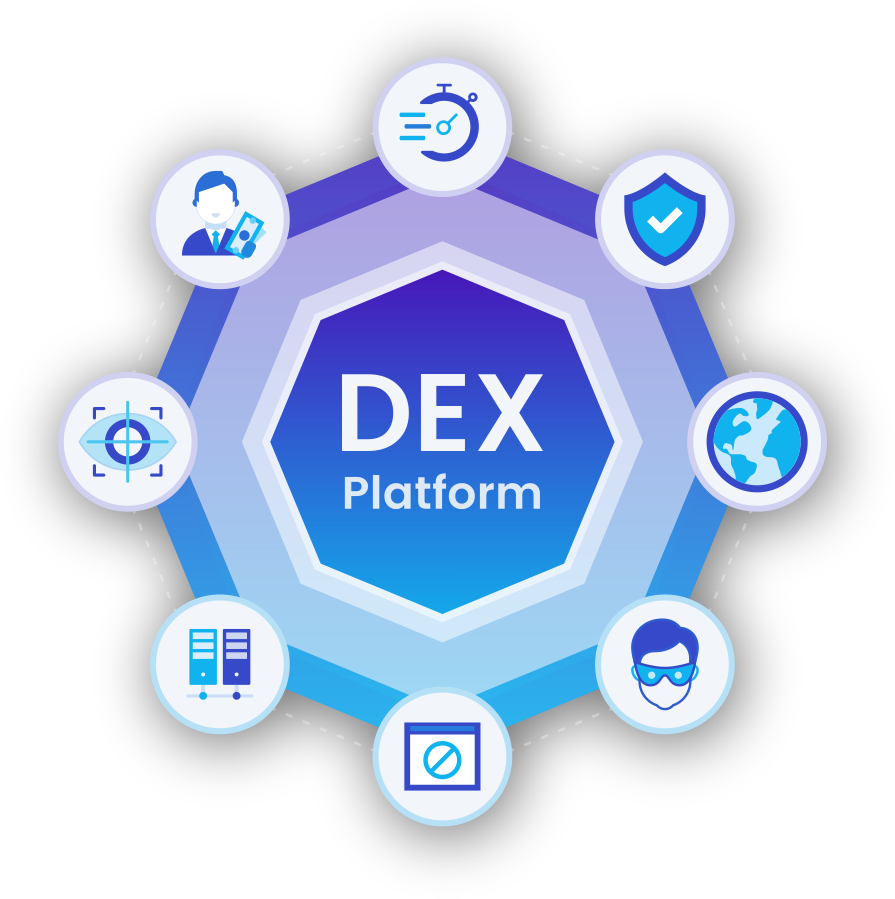A decentralized exchange (DEX) is a type of cryptocurrency exchange that operates in a decentralized manner, without relying on a central authority or intermediary to facilitate transactions. In a DEX, users retain control of their private keys and have direct ownership and control of their funds, without the need for a third-party custodian. DEXs are designed to promote peer-to-peer (P2P) transactions and offer increased security, privacy, and user control compared to centralized exchanges (CEXs).

Creating an account on a centralized exchange (CEX) typically involves the following steps:
Choose a DEX:
Research and select a DEX that aligns with your needs and requirements. There are various DEXs available on different blockchain networks, each with its own features, liquidity, and trading pairs.
Set up a wallet:
DEXs typically require users to have a compatible cryptocurrency wallet to interact with the exchange. You will need to set up a wallet that is compatible with the blockchain network on which the DEX operates. For example, if you are using a DEX on the Ethereum blockchain, you will need an Ethereum wallet such as MetaMask or MyEtherWallet.
Fund your wallet:
Transfer or deposit the cryptocurrencies you want to trade onto your wallet. This typically involves sending cryptocurrencies from another wallet or exchange to your DEX-compatible wallet. Make sure to follow the instructions provided by the DEX and double-check the wallet address to ensure accurate transfers.
Connect your wallet to the DEX:
On the DEX website or platform, you will usually find an option to connect your wallet. This will establish a connection between your wallet and the DEX, allowing you to interact with the exchange using your wallet's private keys.
Start trading:
Once your wallet is connected, you can start trading on the DEX. Depending on the DEX, you may be able to place market or limit orders, swap tokens using an automated market-making (AMM) model, provide liquidity to liquidity pools, or participate in other trading features offered by the DEX.
Review and confirm transactions:
As with any cryptocurrency transaction, it's crucial to carefully review and confirm the details of each transaction before proceeding. Ensure that you understand the fees, slippage, and other transaction details associated with the DEX.
Keep your private keys secure:
Since DEXs do not require you to create an account, your private keys are your sole responsibility. Make sure to keep your private keys secure and backup your wallet's recovery phrase or private key in a safe place.
There are several examples of decentralized exchanges (DEXs) built on various blockchain networks. Here are some popular examples:
Uniswap:
Uniswap is a leading DEX built on the Ethereum blockchain. It is known for its simple and user-friendly interface and uses an automated market-making (AMM) model, allowing users to trade cryptocurrencies without relying on order books.
PancakeSwap:
PancakeSwap is a DEX built on the Binance Smart Chain (BSC). It offers lower transaction fees compared to the Ethereum network and features liquidity pools, yield farming, and token swapping.
Sushiswap:
Sushiswap is another popular DEX built on the Ethereum blockchain. It is similar to Uniswap in its AMM model but also offers additional features such as yield farming, staking, and governance tokens.
Curve Finance:
Curve Finance is a DEX designed specifically for stablecoin trading. It offers low slippage and high liquidity for stablecoin pairs, making it popular for users looking to trade stablecoins with minimal fees.
0x:
0x is a protocol for building DEXs on the Ethereum blockchain. It provides an open-source infrastructure for developers to build their own DEXs with customizable features, such as order books, liquidity pools, and more.
Bisq:
Bisq is a decentralized, open-source, peer-to-peer cryptocurrency exchange that allows users to trade cryptocurrencies without a central intermediary. It does not require users to provide personal information or go through a KYC process.
